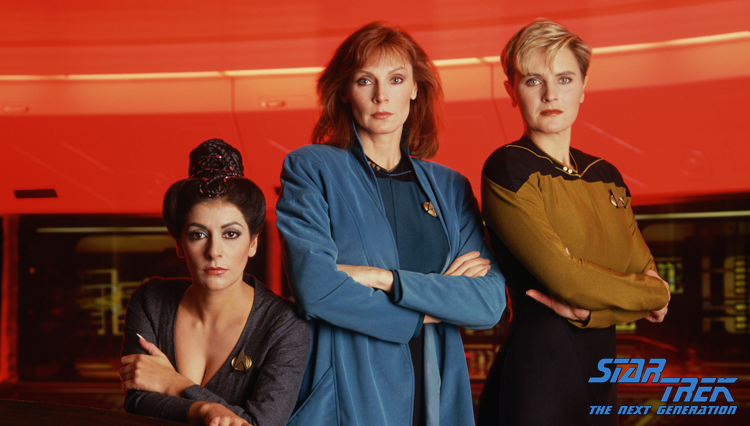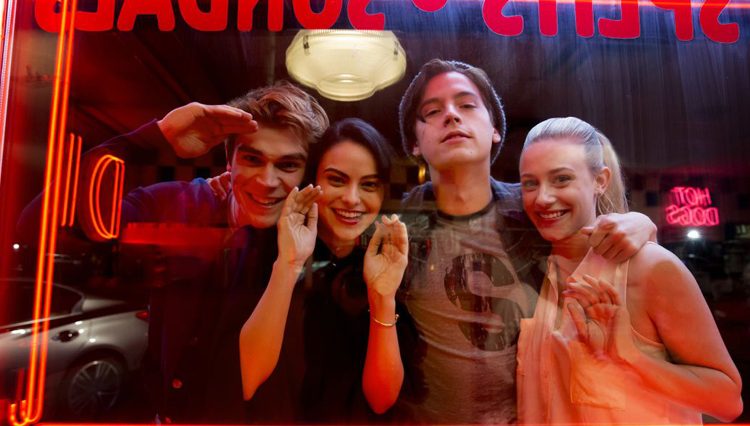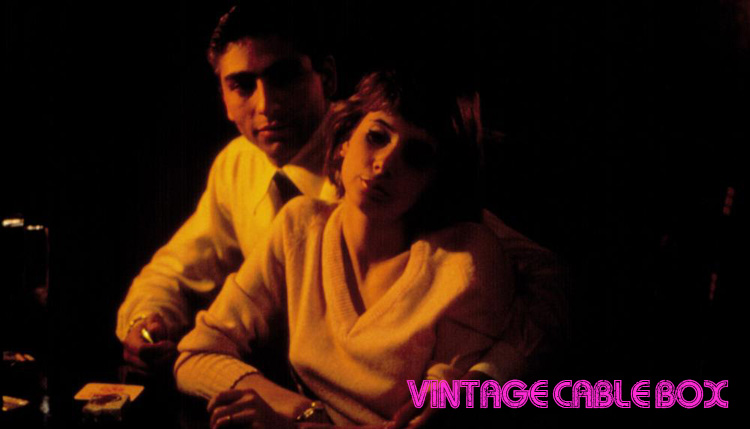
“We’re not in high school anymore.”
Baby It’s You originally premiered on The Movie Channel as part of a John Sayles retrospective that included some of his work with Corman: Alligator and The Lady In Red, as well as The Return of the Secaucus Seven and The Brother From Another Planet, his unusual and clever take on science fiction and race relations starring Joe Morton.
Baby It’s You, 1983 (Rosanna Arquette), Paramount Pictures
As soon as they bump into each other at school, we know they’re going to be inextricably drawn to each other. Sheik (Vincent Spano) appears overdressed for high school. He wears a suit and tie. He has dark skin and slicked-back hair. Jill (Rosanna Arquette) is a nice Jewish girl, destined to meet and marry a nice Jewish boy. She can’t help but be drawn to Sheik. She studies acting and spends most of her time being bored out of her skull, and attempting to fit in with her friends. It’s 1966, but every time we see Sheik, Bruce Springsteen comes on to the soundtrack. He wastes no time asking her out, but she rebuffs him. Like any good anti-hero, rebel-type, Sheik gets under her skin (no pun intended there), and she can’t stop thinking about him.
Sheik is a monkey-wrench in Jill’s plan for her future. She daydreams, sees her name up in lights on a marquee. She wants to make it big in the city. Sheik wants to be a singer in the tradition of Frank Sinatra. Underneath his suave, almost-manufactured, ethnic image, he is an angry young man and extremely passionate. Arquette’s Jill puts on a brave face, full of bravado, but she is shy and frightened, especially when in Sheik’s presence. They both want to entertain. They have that much in common. He takes her out on a date, and he ignores her to hang with his guy-friends, which irritates her, or maybe I read irritation in Jill’s face.
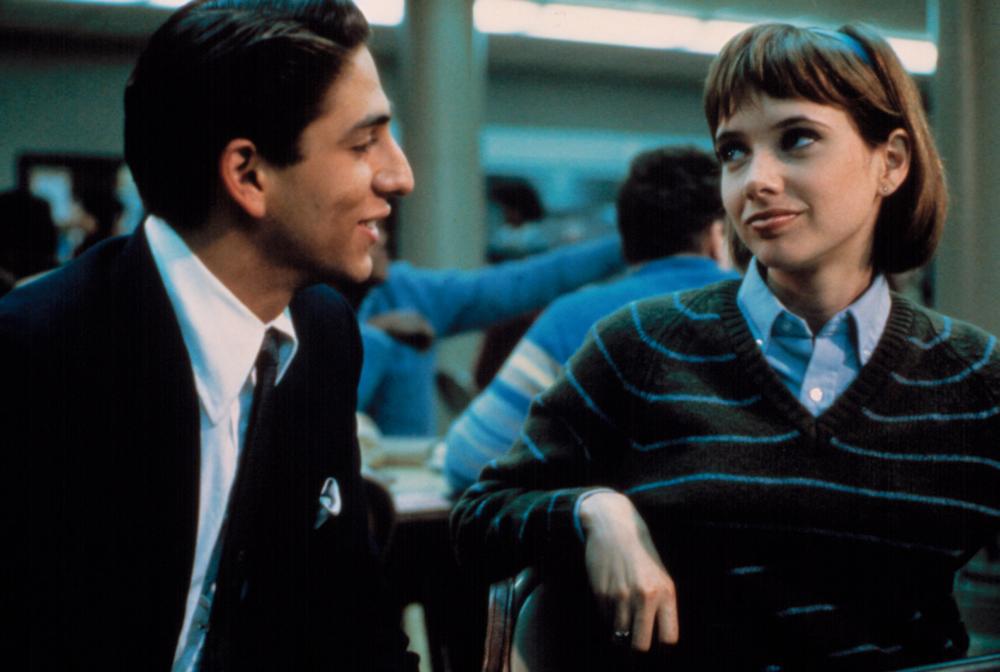
Sheik is expelled from school – it seems all he does is wander the corridors. He turns to crime while Jill’s burgeoning acting career takes off. She goes to college, while he lipsyncs Sinatra tunes in dive bars. In the penultimate scene, Jill visits him and they make love. I’d been exposed to sex scenes before, but nothing plays quite so real for me like this scene between Arquette and Spano, no doubt due to their chemistry and mutual affection. It’s uncomfortable to watch at times. You almost feel like a voyeur watching them. It’s also unbelievably erotic though it is understated. Even for all their fighting, he worships her.
John Sayles adapted and directed an autobiographical story written by Amy Robinson, which she and Griffin Dunne produced for their Double Play Productions. Robinson had starred in Martin Scorsese’s Mean Streets in 1971 as Harvey Keitel’s epileptic girlfriend. She and Dunne produced After Hours in 1985 (also starring Dunne) for Scorsese. They would go on to produce Running On Empty and White Palace. John Sayles started his career writing low budget scripts for Roger Corman like Alligator, The Lady In Red, and Piranha. Baby It’s You was his first “studio” movie in that it was financed from outside sources and released by Paramount Pictures.
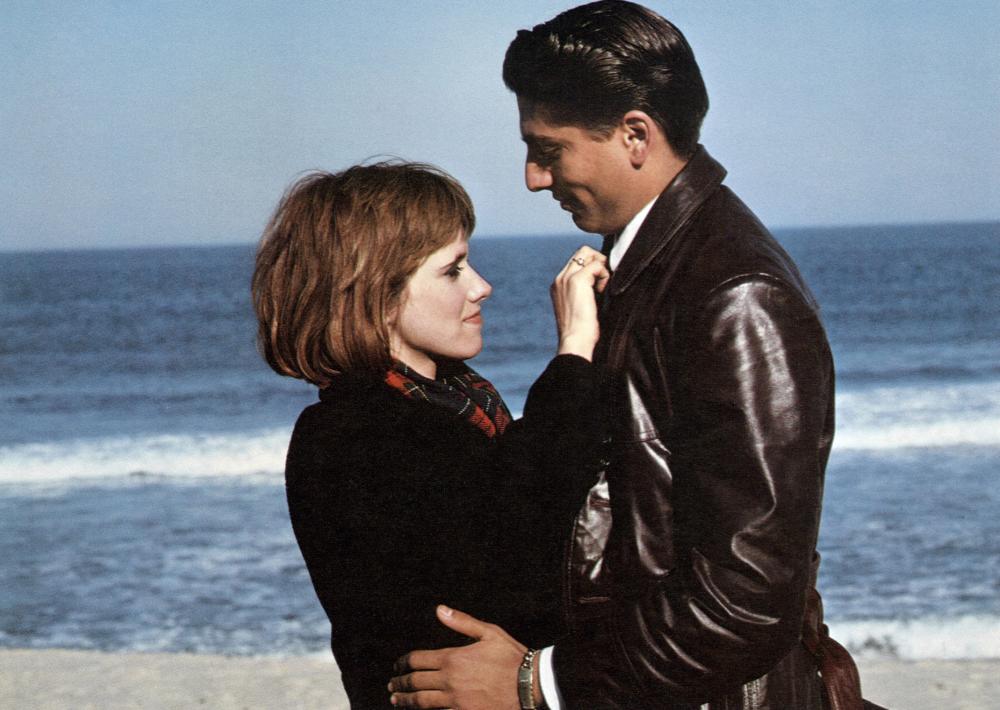
Sayles’ elusive style (or lack of) focuses on eccentric stories with unusual characters, and while Baby It’s You walks familiar paths (the rebel, the good girl), he imbues the story with an unusual energy that bridges generations. This story can be told in any time with any group of characters. Sayles would go on to direct four unqualified masterpieces, Eight Men Out, Matewan, The Secret of Roan Inish, and Lone Star. It’s frustrating to see such a brilliant filmmaker make so many films and not have astounding box-office success.
Rosanna Arquette had notably appeared in The Executioner’s Song and The Dark Secret of Harvest Home, but it was this movie that launched her career. She would later appear in Desperately Seeking Susan, After Hours, and Pulp Fiction, to name a few. Vincent Spano appeared in Rumble Fish that same year, and later, Alive.
Our first cable box was a non-descript metal contraption with a rotary dial and unlimited potential (with no brand name – weird). We flipped it on, and the first thing we noticed was that the reception was crystal-clear; no ghosting, no snow, no fuzzy images. We had the premium package: HBO, Cinemax, The Movie Channel, MTV, Nickelodeon, CNN, The Disney Channel, and the local network affiliates. About $25-$30 a month. Each week (and sometimes twice a week!), “Vintage Cable Box” explores the wonderful world of premium Cable TV of the early eighties.


